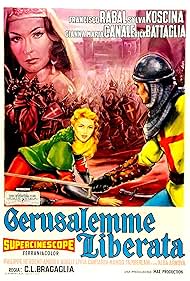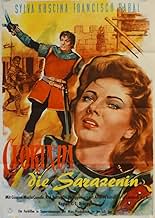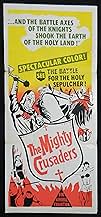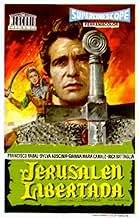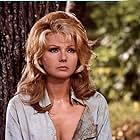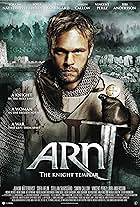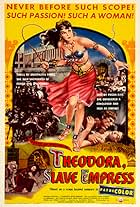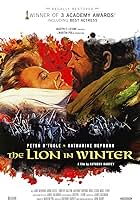This made for a belated addition to a Bragaglia peplum trilogy that also incorporated the lesser QUEEN OF BABYLON (1954) and THE FOUR MUSKETEERS (1963). However, it was not watched under congenial circumstances given the English dubbing (though the print emerges as reasonably handsome) as well as the panning-and-scanning. Besides, some abrupt plot development throughout indicates the version I acquired (running 88 minutes) was slightly trimmed since the IMDb gives its full-length as 95.
The film itself is quite good and decidedly literate, though perhaps not enough to do justice to Torquato Tasso's epic poem "La Gerusalemme Liberata" (which was also the picture's original title). The narrative unfortunately resorts to contrived romantic situations, and we even get two for the price of one – involving Christian males (Francisco Rabal and Rik Battaglia) and Muslim ladies (Sylva Koscina and Gianna Maria Canale). That said, the teaming of Luis Bunuel regular Rabal (in atypical hero mode) and Koscina (who also gets in on the action!) is ideal; interestingly, the tragic finale has the two unwittingly engage in a duel and one of them ends up killing the other! Genre stalwart Canale, on the other hand, treads familiar i.e. duplicitous territory.
The film obviously elicits comparison with the likes of THE CRUSADES (1935) and KING RICHARD AND THE CRUSADERS (1954) and actually falls somewhere in between in both approach and effect (being also decidedly sober in comparison with most entries within this field!). Portions of the main theme by Roberto Nicolosi felt oddly familiar: I am sure it was used in some Mexi-Horror that I watched earlier this year, or else was in a trailer gallery included on the disc containing a couple of them, but I cannot for the life of me tell just which one! Anyway, the finale has Christians gathered victoriously atop a hillside in reverent prayer (accompanied by angelic chorus) and capped with Christ's cross appearing fleetingly in the skies.
